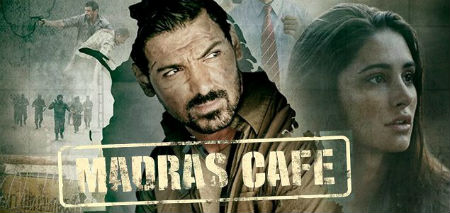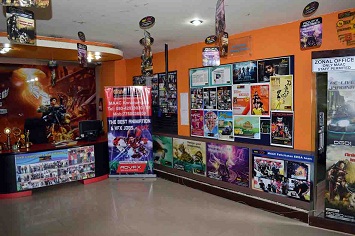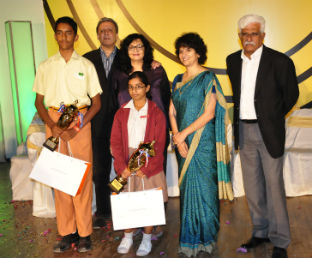The Madras Cafe Debate: Who's Upset & Why?
Oct 11, 2019, 11 31 | Updated: Oct 11, 2019, 11 31
What do films like Black Friday, Fire, 1947 Earth, Jodha Akbar have in common? They are just few of the many films of the same genre (political/ history) that have created controversies because of their subject matter and content. India seems to be becoming more and more intolerant of sensitive issues even being used as a backdrop, for films. As Mohan Raman, popular actor from the Tamil film and TV industry stated, “In today’s times, I don’t think even a film like Mani Rathnam’s Bombay will get a non-controversial release.”
Director Shoojit Sircar’s Madras Café is the latest victim in this controversy. The John Abraham starrer is a political thriller set in the late 80s and early 90’s and shows the Sri Lankan civil war through the eyes of a RAW agent. The film, like most others in its genre, is based on facts intertwined with fiction.
Earlier titled ‘Jaffna,’ this film’s title was changed to Madras Café as the makers thought it seemed more relevant to the story.
What is the controversy?
MDMK leader Vaiko, Seeman, founder of 'Naaam Thamizhar Katchi (We Tamils Party) and other pro-Tamil outfits have sought a ban on the film alleging that it has portrayed the LTTE (Tamil Tigers) in bad light.
We asked Prakash Belawadi, a Bangalore based theatre personality who’s also playing an important role in Madras Cafe about his views on the issue, “I have just one thing to say—if these protesters are pro Tamil, I look at them with respect. If they are pro LTTE, I look at them with great suspicion. The LTTE was behind the assassination of a former Indian prime minister, which is appalling,” he said.
Most of the time, a controversy surrounding a film before its release, is termed as marketing gimmicks by trade pundits. The filmmaker’s PR machinery is put to work and rumours are fuelled just so that the film’s popularity gets benefited. However, it is when the controversy reaches a stage where there is sense of potential ban on them film, that the issue is more serious.
We asked Mohan Raman about the real issue and what really irked the Tamil outfits to such an extent that they are dead set against the film releasing in Tamil Nadu. “Well firstly, there are two primary issues: a) huge perception gap – people from the north perceive all Lankan Tamils as LTTE. b) Pre conceived notions – all Tamil outfits think that anyone saying anything about them is out to attack Tamilians. It’s very similar to the India-Pakistan friction,” shared Raman.
“Secondly, films—the moment they are censored, cannot be re-censored by any private group. If feelings are hurt or affected, the correct approach in a democracy is to take legal measures. Otherwise, it leads to a certain sense of anarchy at the time of the film’s release. Imagine what producers have to go through… they’re always on tenterhooks dreading who might say what.”
He continued, “Thirdly, films need to be sensitive to the fact that they are dealing with people’s feelings. In the case of this film, Lankan Tamils could have been consulted while the film was in scripting stage. Now what’s happening is that they’ve (pro Tamil groups) started howling even before watching the film.”
Although the producers have managed to keep a tight lid on the plot of the film, reports suggest that the film depicts incidents leading up to Rajiv Gandhi’s assassination. We asked Belawadi for some clarification on this matter, though he dodged the response by saying, “Oh, boy, I'm not going there. But yes, it's based on real events.”
According to reports, a screening of the film was organized for various Tamil outfits a couple of weeks back. The fact that a ban on the film is being proposed now suggests that the film’s portrayal of LTTE did not go too well with its viewers.
“People here would not like to watch it,” said Raman, on the phone from Chennai. “I would not like to watch something that portrays my rich and celebrated culture in a bad light. Also, every film must be seen as an Indian film, not as Tamil, Hindi, Bengali etc. There are so many subgroups within our country, if we were to delve deeper into that aspect, anyone will get hurt over something or the other,” he added.
Madras Café is John Abraham’s second film as a producer (his first production, Vicky Donor was a runaway hit and helped Abraham establish himself as a successful producer). The director of the film, Shoojit Sircar started his feature film career with Yahaan – a love story set amidst the turmoil in Kashmir.







